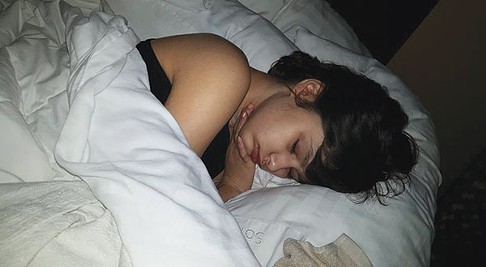The fight for medical-marijuana legalization in Pennsylvania has now gone on for two-and-a-half years. The bill has passed the state Senate twice and has been stalled more times than anyone can count. Advocates claim they have the votes to pass it in the House, but more conservative voices in the House leadership have blocked it from coming to the floor.
In a way, the bill has made massive headway since 2013, while at the same time not moving forward at all. During this time, though, one thing has changed — Heather Shuker’s daughter, Hannah Pallas, has gotten sicker.
“Look, I’m an optimistic person, and I know this will happen. The question is just when,” says Shuker, whose daughter suffers from intractable epilepsy and has hundreds of seizures every week. “In the time we’ve been fighting this, Hannah has definitely [regressed] to the point that she has atrophy of her cerebellum. Her brain is shrinking. She can’t walk like she used to, she’s not as coordinated.
“There’s talk that the medicines she’s on — a dose normally given to an adult male — has played a part in this. We need to get her off these drugs and on something that has been proven to work.”
As medical cannabis has become legal in other states over the past several years, anecdotal evidence has begun to emerge that shows patients with a wide variety of medical conditions, including intractable epilepsy have been helped. Most of that medicine uses an extract from the plant known as cannabidiol, which does not cause a high.
Shuker isn’t the only one who’s growing impatient with the legislature’s stalling of a bill that polls have shown 88 percent of Pennsylvanians support. Last week, dozens of advocates staged a sit-in at the state capitol to protest inactivity on the bill. According to the Reading Eagle, Gov. Tom Wolf addressed the crowd, saying: “We can get this done. We need to get this done.”
But Shuker and other parents are tired of waiting. There is bipartisan support for the legislation. Republican state Sen. Mike Folmer, of Lebanon County, is one of the main sponsors of the bill, along with progressive Democratic Sen. Daylin Leach. The new House Majority leader, Republican Dave Reed of Indiana County, has also pledged his support and appointed a bipartisan task force to come up with compromise legislation. That panel made recommendations, but nothing has been put forward for discussion.
Last week, City Paper obtained proposed legislation from Dauphin County Republican Ron Marsico that amends the Senate bill while making changes that would limit the amount of THC (the the psychoactive component of marijuana) at 10 percent. Unlike cannabidiol, THC is the component of marijuana that gets a person high, but it also has medicinal purposes says the National Institute on Drug Abuse. THC can combat nausea and inflammation and help with muscle control and pain management.
Under Marsico’s proposal, doctors and pharmacists would have to take a four-hour course “regarding the latest scientific research on medical marijuana, including the risks and benefits of medical marijuana, and any other subjects deemed necessary.” Owners and employees of dispensaries would be required to take a two-hour certification course with a more specific purpose in mind. The course will show the employees how to recognize “unauthorized suspected activity under this act and the regulations … including criminal diversion of medical marijuana and falsification of identification cards.”
Reed has promised that a bill will come to the House floor for discussion in the next legislative session, which begins March 14. It’s a pledge that pleases Leach, who told CP last week: “I was encouraged to learn that the House will hold a vote on my medical-cannabis bill during its first week of session in March. I’m eager to see how my colleagues want to amend the bill and am hopeful that the needs of patients will be the top priority.”
Shuker is hopeful that the needs of patients like her daughter will be considered sooner rather than later. Once a law is passed, it will take time to get a program up and running. In the meantime, her daughter’s quality of life decreases every day. Now, for example, she is fed through a tube and is unable to eat or drink by mouth, due to a high risk of aspirating into her lungs causing pneumonia.
Last week, Shuker sent an email to House leadership, including state Rep. Mike Turzai (R-Moon), one of the bill’s biggest opponents. She tells Turzai that “it’s actually kind of sad that you are so far behind your peers” on the issue. She continues: “I do not know how you sleep at night. I only pray you never have to suffer as we have. My daughter and sick Pennsylvanians need legal access to medical cannabis now. Your excuses are old and ignorant.”
For his part, Turzai has said he worries that marijuana would not just be used for medical purposes and could be an “entry drug” for high school students. Research studies, including those from the National Institute on Drug Abuse, have long ago debunked the gateway-drug theory.
For Hannah, Shuker says the powerful prescription drugs she’s on now are not helping.
“It’s extremely frustrating that my daughter has to take drugs like Ativan and phenobarbital that make her worse,” Shuker says. “Why is she taking these powerful drugs when she could be using medical cannabis? It doesn’t seem real to me sometimes that a sick child in the United States can’t get a natural plant that would actually help her.”


